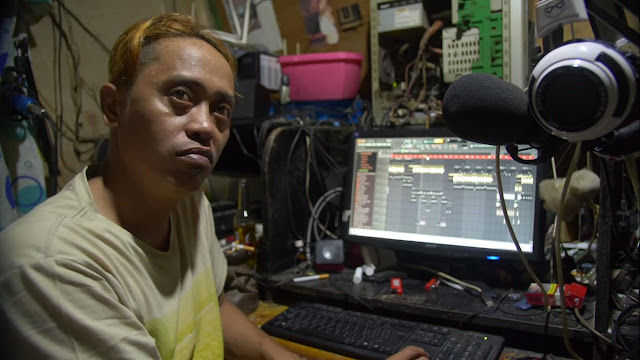Soil Without Land: Sang Lod’s Dream of Freedom
Soil Without Land follows the story of Jai Sang Lod in joining the Shan State Army (SSA) and his dream for their land's freedom. Nontawat Numbenchapol's recent documentary eludes the path of politicizing or making a direct commentary in the conflict between Myanmar (Burma) government and its ethnic minorities.
The film opens with an aerial shot of the Shan community. The protagonist tells his story, through a voice-over, about his family, his first experience of chaos, and why his mother died, as well as their displacement. The filmmaker acts like a curious outsider-observer who is interested to listen to the story of Sang Lod. He asks questions, not merely as an interviewer, but a friend who shuns his own judgment and biases. The filmmaker's curiosity in this complex issue makes this film humane and heartfelt.
Every young man (ages 18-45) in the Shan community is obliged to undergo mandatory military training. They have no choice but to comply and fight for their freedom. These young men grow up without any cards or passports. They cannot travel anywhere or have the life they aspire for. In the film, Sang Lod tells the filmmaker that he went to Bangkok to look for a job. He became a waiter at a Karaoke bar but later on, came back to his community to serve his people.
During the Q and A part of its screening at the 7th Salamindanaw Asian Film Festival held at General Santos City, Nontawat shared that he was conscious of the ethical principles in making this documentary. For example, there is a scene in the film where a young Shan trainee is shown with a big chain on his ankle. He took the time to consult the Shan Army about this scene. As he said, it took three years in shooting this documentary.
This is a common dilemma among documentary filmmakers, especially if it is a controversial subject and the filmmaker is considered as an "outsider." Like the case of Joshua Oppenheimer's two documentary films that speak about Indonesia's dark era – The Act of Killing (2012) and The Look of Silence (2014). Oppenheimer received backlash and criticisms particularly on the issue of power relations between the filmmaker and his subject(s). Indonesian documentary filmmaker Shalahuddin Siregar wrote a lengthy critique about it, arguing that "the film's ethical transgressions outweigh and ultimately undermine the film's and the filmmaker's quest for justice in exposing perpetrators of the 1965-66 killings in Medan, North Sumatra." Siregar, as a documentary filmmaker himself, "implores us as audiences and filmmakers to adhere to ethical principles in investigating and telling stories about human rights violations without using 'manipulative, intimidating and exploitative methods'."
Soil Without Land is a reminder that we should not be simply spectators. We should be active participants in Nontawat's whole process of filmmaking. This documentary would make you ask more questions. It would motivate you to research more about the subjects and their struggles.
The right to self-determination is a common issue among Southeast Asian countries. But it remains elusive and politicized. Shan people and their struggles are not known to the world. This documentary hopes to open discussions and shed some light on this complex issue. Sang Lod and his people are hoping that one day they will get what they are dreaming of.



Comments
Post a Comment
You are welcome to share your ideas with us in comments!